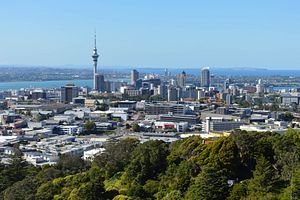The incoming New Zealand government has made global headlines with an announcement that it will place restrictions on the property that foreigners are allowed to purchase. The concept is being sold as a way to cool the country’s housing market, especially in its largest city, Auckland, which has become the world’s fourth most expensive city for housing (after Hong Kong, Sydney, and Vancouver).
Prime Minister Jacinda Ardern has laid the blame for the country’s increasing unaffordable housing on foreign speculators. In launching the proposal, she stated, “We are determined to make it easier for Kiwis to buy their first home, so we are stopping foreign speculators buying houses and driving up prices. Kiwis should not be outbid like this.” (Kiwis is the colloquial term for New Zealanders.)
In order to implement this policy, the government will seek to amend the Overseas Investment Act in order to reclassify existing residential housing as “sensitive,” making purchases of pre-existing dwellings available only to New Zealand citizens, permanent residents, and Australians. However, anyone falling outside of those categories will still be able to purchase vacant land to build new houses, or purchase apartments “off the plan.”
This reclassifying of existing residential housing as “sensitive” is seen as the best workaround to ideals within the Trans-Pacific Partnership (TPP). Currently the TPP stipulates that the 11 states still pursuing the agreement all give equal access to each others’ markets for investors under the agreement’s “most favored nation” clauses, unless there are specific exemptions such as the changes the NZ government seeks to make. Member states will be seeking to finalize arrangements on the TPP at an Asia-Pacific Economic Cooperation (APEC) meeting in Vietnam next week, which is why NZ has been keen to quickly create this amendment
While this approach may have been able to find a workaround in regards to the TPP, the new provision may come into conflict with other free trade agreements, which stipulate that each country is to give each other’s investors the same treatment as domestic investors. Trade Minister David Parker has stated that the South Korean agreement will not be affected by the new provision. However, Ardern has acknowledged that the provision will affect the agreement with Singapore and some renegotiation will need to occur.
However, it remains to be seen whether this change will have any significant effect on the prices of property in New Zealand. It is estimated that foreign investors make up only 3 percent of New Zealand’s property purchases, and there is a strong tendency toward buying newly constructed properties as well (which would be exempt from the changes). A number of other structural factors are more likely to produce high property prices, including low interest rates, a significant lack of housing supply, and tax arrangements that favor investors (domestic or otherwise) and tilt the market in favor of existing homeowners, landlords, and those looking to “flip” properties.
This gives rise to the suspicion that the restriction on foreign purchasers is more a political tactic than one designed to make housing more affordable for first-time home buyers. While it may seem like a move designed by Labor to placate the parochial tendencies of its coalition partner, the New Zealand First Party, Labor itself has a history of expressing nativist sentiments in regard to foreign investment. Former Labor leader Andrew Little, whom Ardern replaced in August, had previously defended the release of “crude” data indicating that between February and April of 2015, 40 percent of houses sold in Auckland were bought by people with “Chinese surnames.” Such a bumbling approach should be more familiar to their current populist coalition partner than a mature major party.
Combined with Labor’s commitment to cutting New Zealand’s immigration intake by 20,000 to 30,000 per annum (from a current intake of around 70,000), and it seems that Labor itself has moved away from the more liberal approach that the party and its major party rival, National, had shared over the past few decades. While these immigration cuts may have some effect on the demand for property, this may be offset by the negative impact on the country’s economic growth that the policy is also bound to have.
If the new Ardern government wished to be serious about bringing down the cost of housing, instead of using cheap political tactics to find scapegoats in foreigners, it should instead look at revising the land regulations and planning rules in Auckland, which severely restrict the ability to build. Reassess the city’s growth boundary, which has prevented Auckland from expanding outward, as well as the anti-density restrictions that have prevented the city from growing upward. And, importantly, revise the tax incentives that encourage the financially stable to put their wealth in property and then jealously guard it (as homeowners influence council planning), preventing young people from gaining access to the market.

































